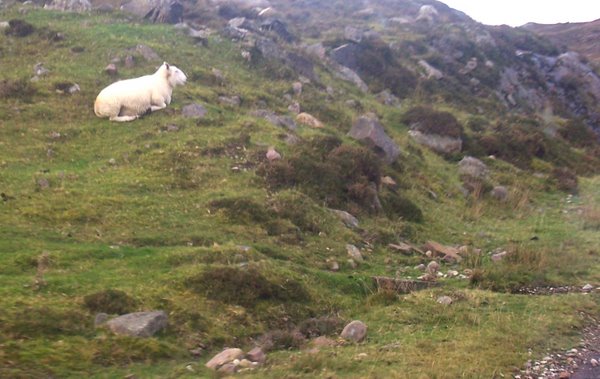"Strangers!
or should i be the Stranger? NVM
anyway i'm in a perky mood this evening! cant you tell!?
been sick all week, and when i wasn't sleeping i was at work, working...
yet somehow through all the busy, tieredness of my like i feel happy, could it be 'cause i just finneshed a great book? I think mabey so!
ARENA by Karen Hancock, her first book, very lovable.
kind of a narnia story."
"We intend this for your benefit..."
Those are the last words that Callie Hayes hears on Earth.
Life can be difficult sometimes. Some people go from disappointment to disappointment, never quite figuring out what it is that they need to do to live fulfilling lives. This is Callie's problem. Four years of raising rats and a lifetime of stifling her artistic impulses have rendered her a frustrated nervous wreck. She's acrophobic, lonely, and anti-social--not to the point of being unable to function, but certainly enough to be uncomfortable and shy. Her only real friend is the bubbly, vivacious Meg, who talks her into participating in a psychology experiment held at the University of Arizona.
It's at this point that things begin to go wrong. Everything's a little too perfect. Between the model-handsome lab techs and the creepy homeless guy camped out in the lobby trying to warn people away from the experiment, Callie almost backs out. But after finishing the initial profile and the physical tests, Callie finds that the choice has been taken from her. A lab tech hands her a jumpsuit, a manual, and a backpack full of confusing items, and dumps her unceremoniously into the Arena.
Yes, that's right. Callie Hayes gets abducted by aliens, and deposited on another planet. Shades of The Twilight Zone...
What is the Arena? It's another planet, one filled with dangerous creatures, carnivorous plant life, and murderous people-eating humanoid creatures called Trogs. The rules are simple; follow the white road. Use your manual and the keys provided in your backpack along the way, and you should be out of the Arena in a few hours. Stray from the road, and you're on your own. You may be able to piece together things in your pack to make a primitive rifle called a SLuB-40, and you may be able to eke out an existence shooting everything dangerous and forming mercenary bush camps but ultimately--stray from the road, and the aliens wash their hands of all responsibility towards you.
Of course, nothing is ever quite that simple, and Callie quickly finds out that the perils created in her own mind are much more dangerous than those created by the Arena.
If you've ever read any Christian allegory, you're probably pretty sure where this story is going and what it might mean on the surface. Even if you're not familiar with Christian allegory, you're not going to be too surprised. Follow the road provided by Christ, and get through life quickly, easily and comfortably. Stray from the road to do your own thing, and it sucks to be you...until, of course, you get back on the road.
But here's where Arena distinguishes itself from a lot of modern allegory, and a lot of modern "Christian" fiction. It goes deeper. Author Karen Hancock recognizes that life is not always that cut and dried. Bad things happen to people on the road, and good things happen to people off of it. Things aren't always what they seem, and sometimes people need a good long stint of time off of the road in order to make them appreciate all that comes after it. Sometimes, people just need to try and find their own way, for better or for worse. We're not all perfect Pilgrims, but we're not all evil incarnate either. Sometimes, trying to do the right thing without any understanding of what the right thing really is can do us more harm than good. Callie falls somewhere in the middle of all of that. Her initial departure from the road isn't an act of defiant will, it's an attempt at self-preservation--and once she's strayed, she can't find her way back without a lot of help from other's trapped in the Arena.
And then, the story of the Arena goes even deeper. I'm not going to give a lot away, because much of the meat of the book revolves around what the reader thinks and feels about it, and how far the reader is willing to go into the allegory. In other words, you've just got to check this out for yourself. Suffice it to say, that at it's heart and bare bones, Hancock provides us with an incredibly complex, yet easy to read, allegorical device that holds up on at least four different levels of understanding(that I can think of) and ranks up there with the likes of Pilgrim's Progress and The Lion, The Witch, and the Wardrobe.
Wednesday, February 14, 2007
Subscribe to:
Post Comments (Atom)



2 comments:
I want so badly to edit your spelling mistakes. BUT i still love you. MOM
Good book review, Thea!! Makes me want to read the book. ;)
Post a Comment